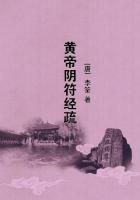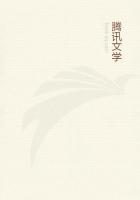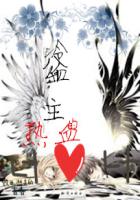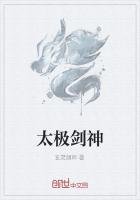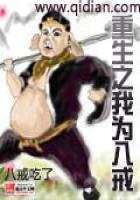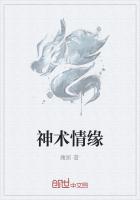The thieves took the goat and ate it." The adroitness of the Norse King in "The Three Princesses of Whiteland" shows but poorly in comparison with the keen psychological insight and cynical sarcasm of these Hindu sharpers. In the course of his travels this prince met three brothers fighting on a lonely moor. They had been fighting for a hundred years about the possession of a hat, a cloak, and a pair of boots, which would make the wearer invisible, and convey him instantly whithersoever he might wish to go. The King consents to act as umpire, provided he may once try the virtue of the magic garments; but once clothed in them, of course he disappears, leaving the combatants to sit down and suck their thumbs. Now in the "Sea of Streams of Story," written in the twelfth century by Somadeva of Cashmere, the Indian King Putraka, wandering in the Vindhya Mountains, similarly discomfits two brothers who are quarrelling over a pair of shoes, which are like the sandals of Hermes, and a bowl which has the same virtue as Aladdin's lamp. "Why don't you run a race for them?"suggests Putraka; and, as the two blockheads start furiously off, he quietly picks up the bowl, ties on the shoes, and flies away![7]
[7] The same incident is repeated in the story of Hassan of El-Basrah. See Lane's Arabian Nights, Vol. III p. 452.
It is unnecessary to cite further illustrations. The tales here quoted are fair samples of the remarkable correspondence which holds good through all the various sections of Aryan folk-lore. The hypothesis of lateral diffusion, as we may call it, manifestly fails to explain coincidences which are maintained on such an immense scale. It is quite credible that one nation may have borrowed from another a solitary legend of an archer who performs the feats of Tell and Palnatoki; but it is utterly incredible that ten thousand stories, constituting the entire mass of household mythology throughout a dozen separate nations, should have been handed from one to another in this way. No one would venture to suggest that the old grannies of Iceland and Norway, to whom we owe such stories as the Master Thief and the Princesses of Whiteland, had ever read Somadeva or heard of the treasures of Rhampsinitos. Alarge proportion of the tales with which we are dealing were utterly unknown to literature until they were taken down by Grimm and Frere and Castren and Campbell, from the lips of ignorant peasants, nurses, or house-servants, in Germany and Hindustan, in Siberia and Scotland. Yet, as Mr. Cox observes, these old men and women, sitting by the chimney-corner and somewhat timidly recounting to the literary explorer the stories which they had learned in childhood from their own nurses and grandmas, "reproduce the most subtle turns of thought and expression, and an endless series of complicated narratives, in which the order of incidents and the words of the speakers are preserved with a fidelity nowhere paralleled in the oral tradition of historical events. It may safely be said that no series of stories introduced in the form of translations from other languages could ever thus have filtered down into the lowest strata of society, and thence have sprung up again, like Antaios, with greater energy and heightened beauty." There is indeed no alternative for us but to admit that these fireside tales have been handed down from parent to child for more than a hundred generations; that the primitive Aryan cottager, as he took his evening meal of yava and sipped his fermented mead, listened with his children to the stories of Boots and Cinderella and the Master Thief, in the days when the squat Laplander was master of Europe and the dark-skinned Sudra was as yet unmolested in the Punjab. Only such community of origin can explain the community in character between the stories told by the Aryan's descendants, from the jungles of Ceylon to the highlands of Scotland.
This conclusion essentially modifies our view of the origin and growth of a legend like that of William Tell. The case of the Tell legend is radically different from the case of the blindness of Belisarius or the burning of the Alexandrian library by order of Omar. The latter are isolated stories or beliefs; the former is one of a family of stories or beliefs.
The latter are untrustworthy traditions of doubtful events;but in dealing with the former, we are face to face with a MYTH.
What, then, is a myth? The theory of Euhemeros, which was so fashionable a century ago, in the days of the Abbe Banier, has long since been so utterly abandoned that to refute it now is but to slay the slain. The peculiarity of this theory was that it cut away all the extraordinary features of a given myth, wherein dwelt its inmost significance, and to the dull and useless residuum accorded the dignity of primeval history. In this way the myth was lost without compensation, and the student, in seeking good digestible bread, found but the hardest of pebbles. Considered merely as a pretty story, the legend of the golden fruit watched by the dragon in the garden of the Hesperides is not without its value. But what merit can there be in the gratuitous statement which, degrading the grand Doric hero to a level with any vulgar fruit-stealer, makes Herakles break a close with force and arms, and carry off a crop of oranges which had been guarded by mastiffs? It is still worse when we come to the more homely folk-lore with which the student of mythology now has to deal. The theories of Banier, which limped and stumbled awkwardly enough when it was only a question of Hermes and Minos and Odin, have fallen never to rise again since the problems of Punchkin and Cinderella and the Blue Belt have begun to demand solution.

